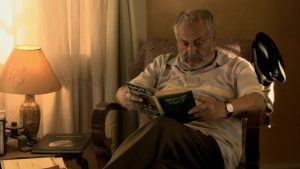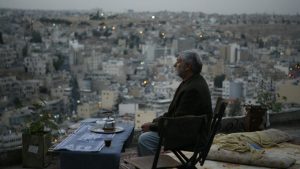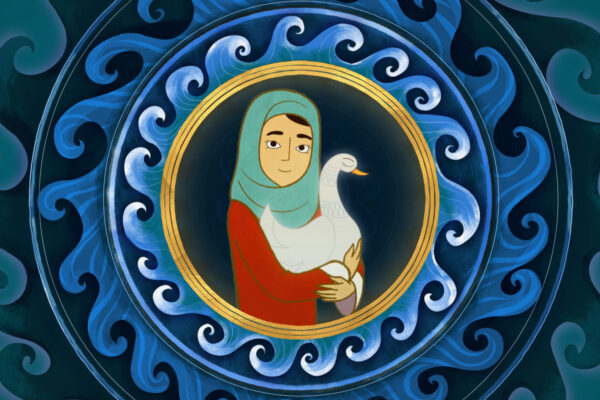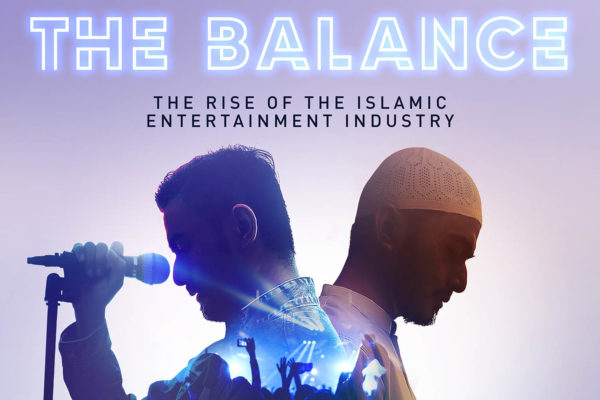Abu Raed’s story is well worth a watch!
Abu Raed’s story is well worth a watch!
Captain Abu Raed is a personal film with a big heart. It was the first film produced by Jordan in 50 years and tells Abu Raed’s story. This elderly man lives between his work as a janitor in the airport and his two thousand books at home. He longs for his wife, who passed away five years prior, living his life one day at a time. His life changes when he finds a captain’s hat in the airport bin and brings it home. One of the kids from the neighbourhood sees the hat in his hands, which inspires the community’s children to visit him and encourage him to tell them stories of adventures worldwide. Abu Raed decides to entertain and educate the children with stories of various world cities while befriending some children. Abu Raed lives next to a young boy Murad, his younger brother, mother and violent and abusive father, Abu Murad. The film intertwines various themes affecting Jordanian society and, dare I say, universal issues of poverty, the importance of education, marriage, domestic violence and loss.
You can stream Captain Abu Raed on USHUB here.

Unlike many blockbuster films that saturate our screens and attention, this film takes time to draw the viewer into Abu Raed’s world and those he befriends. Inspired by the personality of his late grandfather, Amin Matalqa spent over a year and produced 30 drafts of the script to make sure the story and characters all worked well together.
The film went on to win over 27 awards at various films festivals, which demonstrates the effort put into making this story. The main character Abu Raed is played by the Jordanian-British actor Nadim Sawalha. The director Amin Matalqa first met Sawalha when he was fifteen years old through his father. Matalqa was invited to visit Sawalha on the set of the Son of the Pink Panther (1993) film, where he was shown around, and the seed of filmmaking was firmly planted. Little did Matalqa or Sawalha know that they would work together on Captain Abu Raed fourteen years later, where Nadim Sawalha would wonderfully bring the film’s main character to life.

Apart from Nadim Sawalha and Ghandi Saber, a stage actor from Jordan who plays the abusive Abu Murab the rest of the characters are played by non-professional actors. The children play an essential role in the film; they enable Abu Raed to demonstrate his kindness and much more.
I will avoid mentioning much of the plot as I do not want to spoil the film. Matalqa visited six refugee camps, and 200 children were auditioned for the roles. It really is impressive how these non-professional child actors were able to play their roles so convincingly, and with such sincerity, Matalqa fondly mentions their talent;
what really amazed me is the intelligence in their eyes and the raw talent and the instinct that they had, and it was very tricky because Murad (played by Hussain Al-Sous) is a very difficult role to play there’s a huge character arc, he starts out as kind of the antagonistic kid and by the latter half of the film he is actually the central character in the movie along with Abu Raed.”
As if that is not impressive enough, many of the children playing these challenging characters were orphans and dealing with the problems of living in refugee camps as children; they were doing it without their parents being around. Rana Sultan, who plays Nour, another important character in the film, was found by Matalqa’s mother.
After reading the script and meeting the director, Sultan was encouraged to play the role. In the film, Nour is from a wealthy family. In her 30s, she works as an airline captain and is under pressure from her father and the society she lives in to marry and have children. Nour has a strong personality, is very independent, has a successful career, is charming and kind, but cannot seem to connect with any of the men introduced to her by her family for marriage. She is not willing to settle down just for the sake of it. These vital aspects of her personality become essential to the story later in the film when important sub-plots conclude.

It was absolutely refreshing to watch a film with Arabs and Muslims in them, where none of the characters fall into the cliché negative stereotypes that Hollywood keeps perpetuating. Many of the characters had a humanity about them that needs to be represented in more films both from Muslim and Non-Muslim filmmakers. Matalqa shares his frustration with the representation of Muslims in films;
People have this perception that the Middle East is this hotbed of people waving guns and you know shooting in the air, which is ridiculous. It’s such a silly stereotype, and it’s very narrow of the media to present that kind of picture.”
Another aspect of the film that stood out from the beginning was the love it demonstrated for Amman, the capital of Jordan. I have never visited Jordan but watching the scenes unfold and the way the city of Amman was filmed, it really brought a sense of beauty, heritage and culture that is absent from many other films that use Amman and even Jordan as a backdrop in their films;
I really wanted to show the different textures of Amman the city and show like the different colours of the people and the… city is in the hills in Amman you know, and actually it had never been captured cinematically like this whenever they film movies in Jordan they shoot in you know the desert for either doubling for Iraq or Mars.”
The making of the film and the story is unique in many ways. After many decades, this is the first Jordanian production and the story touches so many important issues and does not shy away from dealing with them head-on.
The characters are played by individuals who never dreamt of acting in a feature film. Women are given essential roles in the story and are depicted in nuanced and complicated ways. I was very moved by the film and left thinking about its themes for several days. I recommend you watch Captain Abu Raed and detox your mind from the formulated Hollywood films that mostly look the same.
You can stream Captain Abu Raed on USHUB.
Quotes from an interview with the director from August 2009, Mr. Media.





